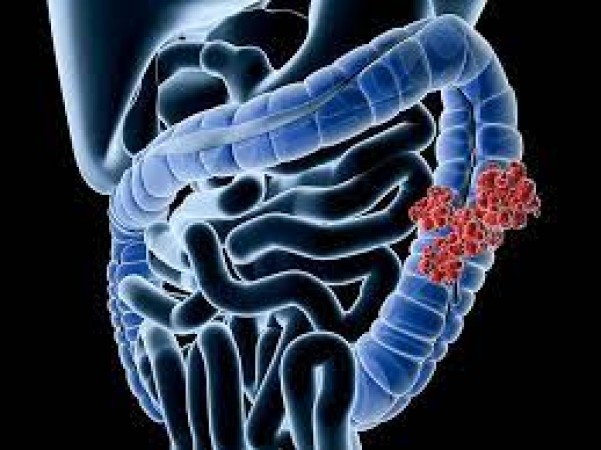
Colon cancer is a serious health concern that has traditionally been associated with older individuals. However, in recent years, there has been a concerning rise in the number of cases among younger people. This shift in demographics has raised alarms within the medical community, prompting a closer examination of the factors contributing to this trend.
Traditionally, colon cancer has been considered a disease of the elderly. However, recent studies have shown a significant increase in the incidence of colon cancer among younger age groups. This shift in demographics has raised questions about the underlying causes and risk factors contributing to this trend.
Several lifestyle factors have been identified as potential contributors to the rise of colon cancer in youth. Sedentary lifestyles, characterized by minimal physical activity and prolonged periods of sitting, have become increasingly common in modern society. Additionally, poor dietary habits, such as high consumption of processed foods, red meats, and sugary beverages, have been linked to an increased risk of colon cancer.
While lifestyle choices play a significant role in the development of colon cancer, genetic predisposition also plays a crucial part, particularly in younger demographics. Individuals with a family history of colon cancer or genetic syndromes such as Lynch syndrome or familial adenomatous polyposis (FAP) may have an elevated risk of developing the disease at a younger age.
One of the hallmark symptoms of colon cancer is persistent abdominal discomfort. This may manifest as cramps, gas, bloating, or generalized abdominal pain. While these symptoms can be caused by a variety of gastrointestinal issues, persistent or worsening discomfort should not be ignored and warrants further evaluation by a healthcare professional.
Changes in bowel habits can also indicate a potential issue with the colon. These changes may include diarrhea, constipation, or alterations in stool consistency. Individuals who experience significant changes in their bowel habits should consult with a healthcare provider to determine the underlying cause.
Unexplained weight loss is another concerning symptom that may be associated with colon cancer, particularly if it occurs rapidly and without diet or exercise changes. While weight loss can be caused by various factors, including stress or underlying medical conditions, it should be evaluated by a healthcare professional to rule out serious underlying causes such as cancer.
The presence of blood in the stool, whether bright red or dark in color, is a significant warning sign that should not be ignored. While blood in the stool can be caused by benign conditions such as hemorrhoids or anal fissures, it can also indicate more serious issues such as colorectal cancer. Individuals who notice blood in their stool should seek medical evaluation promptly.
Adopting a healthy diet is essential for reducing the risk of colon cancer. A diet rich in fruits, vegetables, whole grains, and lean proteins can provide essential nutrients and fiber while reducing exposure to harmful substances found in processed and red meats. Additionally, limiting the consumption of sugary beverages and foods high in saturated fats can further support overall health and reduce the risk of cancer.
Regular physical activity is not only beneficial for maintaining a healthy weight and promoting cardiovascular health but can also reduce the risk of colon cancer. Exercise helps to stimulate bowel movements, promote digestion, and reduce inflammation in the body, all of which can contribute to a lower risk of developing colon cancer. Aim for at least 30 minutes of moderate-intensity exercise most days of the week to reap the benefits.
Tobacco use has been strongly linked to an increased risk of colon cancer, as well as other types of cancer and chronic diseases. If you smoke, quitting is one of the best things you can do for your health and well-being. Additionally, limiting alcohol consumption can help reduce the risk of colon cancer, as excessive alcohol intake has been associated with an increased risk of developing the disease.
Regular screenings, such as colonoscopies, are essential for the early detection and prevention of colon cancer. While colonoscopies are typically recommended for individuals over the age of 50, those with a family history of colon cancer or other risk factors may need to be screened earlier and more frequently. Talk to your healthcare provider about your individual risk factors and screening recommendations.
Being aware of your family history of colon cancer and other related conditions is essential for understanding your own risk and taking appropriate precautions. If you have a family history of colon cancer or genetic syndromes such as Lynch syndrome or FAP, talk to your healthcare provider about genetic testing and screening recommendations.
If you experience any concerning symptoms such as persistent abdominal discomfort, changes in bowel habits, unexplained weight loss, or blood in the stool, it is essential to seek medical evaluation promptly. While these symptoms may not always indicate colon cancer, they should be evaluated by a healthcare professional to determine the underlying cause and appropriate course of action.
Educating yourself about the risk factors associated with colon cancer can help you make informed decisions about your lifestyle and healthcare. In addition to lifestyle factors such as diet, exercise, and tobacco use, other risk factors for colon cancer include age, family history, and certain medical conditions such as inflammatory bowel disease (IBD). By understanding your individual risk factors, you can take proactive steps to reduce your risk of developing colon cancer and promote overall health and well-being.
The rise of colon cancer among younger individuals is a concerning trend that highlights the importance of early detection and prevention efforts. By recognizing the symptoms, adopting healthy lifestyle habits, and seeking timely medical evaluation, individuals can reduce their risk of developing colon cancer and improve their overall health and well-being.
iQOO Z9 5G will be launched soon in India, excellent camera and processor revealed
Nokia Appoints Tarun Chhabra as New India Head Amid Global Restructuring
Xiaomi's Game-Changing Smartphones: Revolutionizing Sports Betting Markets